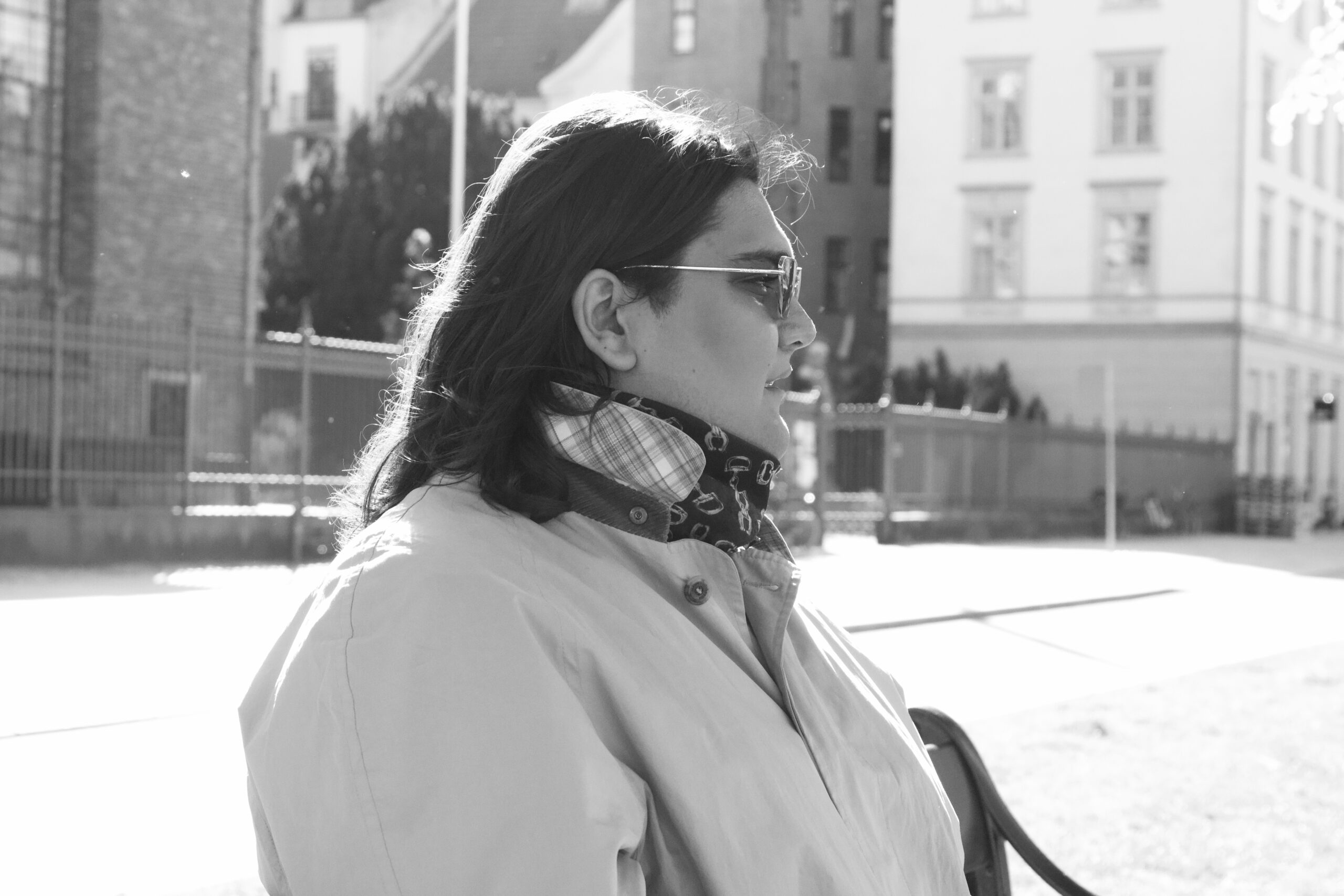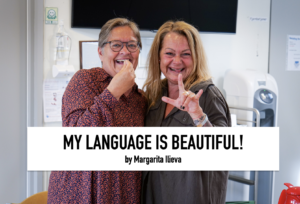by Isabell Gielisch
Denmark is often described as one of the most progressive countries when it comes to its legal framework regarding transgender persons: Especially in January 2017, Denmark got worldwide attention when the country decided that being transgender was no longer considered a mental illness any longer be considered a mental illness– as the first country ever. Its image as a pioneer regarding trans issues is probably also related to the role the country has had in the history of sex reassignment surgeries: The Danish artist Lili Elbe (former: Einar Wegener) was among the first recipients of sex reassignment surgery performed by German doctors in the late 1920s and early 1930.
It was several years later in 1952 that Denmark attracted more widespread public interest when the American transgender woman Christine Jorgensen obtained special permission to undergo a series of sex reassignment surgeries in Copenhagen. She became a celebrity when returning to the United States and appearing on the front page of New York Daily News under the headline “Ex-GI Becomes Blonde Beauty”. This front-running position of Denmark in the past and today might lead to the conclusion that it is the perfect country to live in as a member of the LGBTQ+ community. But how is the reality? How is it to be transgender in Denmark in 2021?

Trapped in the wrong body
The 22-year-old Ellen Elina Kovac Nielsen is one of these people – she was born in a body she couldn’t identify with. She describes this feeling as that she kind of always knew that there’s something wrong, that she was feeling trapped in the wrong body. This feeling lasted until her coming out at 20 when she could finally say: “I am Ellen, this is me and this is correct. This was a big moment.”
Enrico Capelletto, a psychologist working in Copenhagen explains the experience transgenders like Ellen are going through: “It feels like looking into a mirror and not recognizing your own body or just feeling trapped in a body shape, that doesn’t represent your own feelings. As “a normal” person it is hard to understand this feeling.”
Starting the transition made her feel freer but at the same time she reports that it’s been also scary for her: “We don’t know who will react in a certain way like maybe hit you or disgrace you so that’s the scary part. The freeing part is that you are more self-aware of who you are, you don’t have to hide.”
You want to know more about Ellen Alina? Click on this link to see a portrait video.
Living a double life
Unfortunately, Ellen cannot experience the full joy of freedom because her parents couldn’t accept her decision: “My family didn’t take it well. They actually kicked me out and I lived in a suitcase, traveling from friend to friend until it was too hard.” So, she decided to tell her parents that it’s just “a phase” and up to this day Ellen is living a double life. Copenhagen, where she moved last year is her safe place, where she can be herself. On the other hand, there are her parents, where she’s Andreas and presents herself as more masculine and without make-up.

The Coming-out: an emotional roller-coaster
She also lost friends on her way to her true identity: “My friend just couldn’t be with me because he didn’t understand it and I said that’s totally okay – you don’t have to understand it but I’m still me. I’m just more happy and more chill because before I was always nervous, I was always confused and had a lot of mood swings – but he couldn’t.”
Ellen reports experiences like that made her feel angry and confused. Especially as these people knew about her complications, frustrations and worries, and when she finally came out and felt happy and proud, they decided to abandon her. The young woman reports that she was trying to deal with this situation for a while by drinking alcohol. Kicked out of her home, pushed back by some of her dearest friends – she reports it felt like her whole world was falling apart. A dear friend and her sister, who started to be okay with Ellens decision helped her to come out of this dark period.
Psychologist Enrico C. stresses how important the support of family and friends is for a trans person: “There is big research about how the support of the family will help these people about to not feel wrong, about feeling accepted. It’s also a way of preventing isolation, depression, any other mental discomfort or illness.”
Ellen knows she’s on the right path but she also stresses that it’s an emotional roller-coaster: “I really want to say (…) if people are having questions about being transgender be ready for the work and be ready for the emotions.”

The medical transition: a complicated process
A lot of work is not just the social transition a trans person must undergo but also the actual medical transition as Ellen reports. She considers herself lucky because her experience with the Danish Health Authorities was relatively uncomplicated. “But there are a lot of people, who have to deal with a lot of stuff or getting a rejection.”, she adds.
A critical point is the waiting time to get access to certain medical treatments. As Amnesty International criticized in 2014 it can sometimes take longer than one year until someone with a transgender condition in Denmark receives the approval to start with Hormone Replacement Therapy.
Ellen started the hormonal treatment and the process of getting her bottom surgery. The bottom surgery takes a lot of preparation time because it includes multiple tests beforehand, meetings with psychologists as well as waiting time.
Transition is not a linear process
According to Alex Delamare from the organization LBTQ Denmark, there are now about 80 people on the list – all of them are waiting to get their bottom surgery.
Also, Alex criticizes some parts of the medical process, that trans people must undergo. In their opinion (Alex pronouns are they/them) there is still a problem in Denmark that some physicians want to uphold the idea that the transition should be “linear”: “That to be a trans person you must want the entire package like you must want hormones first and then top surgery and then potentially bottom surgery”. This situation doesn’t recognize people as in their own right to get the kind of treatment that they want rather than the package of what is considered to be the right treatment for trans-people – so Alex.

This is due to the fact that the Guide on Healthcare related to Gender Identity, which was published by the Danish Health Authority in 2018 can be read in different ways. Some hospitals read it in such a way that a more flexible treatment is possible, and others would read it so that hormones are indispensable to get access to top or bottom surgery. To Alex this situation is transphobic and should get changed to be more open, allowing people to define the kind of treatment they want: “We as the organization have to keep pushing for these changes because what I see is that there is a big paradigm shift in between what was once an understanding of what made a trans person and a new understanding.”
Alex sees an inherent problem with the fact that people who want to medically transition are still considered to be more trans or more rightly trans than people who do not wish to do so. “If you are a trans person who for some reason doesn’t want to medically transition, which is absolutely valid – you should not do something you don’t want to,” they add.
Lucia Pop, Chief Physician and Specialist in psychiatry at the Center for Gender Identity in Aalborg acknowledges that there is a discussion right now by the Danish Health Authorities and relevant healthcare experts about this specific situation. Mrs. Pop shows herself optimistic, that next year the situation regarding what options are available and under what conditions might be a lot more clarified.
Long waiting lists and a lack of second opinions
Lucia Pop also agrees that there is an issue when it comes to the waiting list for constructive bottom surgery. This is also due to the fact that in whole Denmark the only place performing this surgery is the Rigshospitalet in Copenhagen. Within this Clinic, there are just two surgeons, who are allowed to do bottom surgery. Last year there were only about two operations performed (the exact number and extent of these operations are unclear)– although the hospital had received extra money to speed up the process in order to bring down the waiting list – so Alex Delamare. That’s why it’s hard to tell what amount of waiting time a trans person has to consider: “Sometimes they say that it takes 3-4 years, sometimes I’ve heard 5-6 years and I’ve heard people say that we are now looking at ten years.”, the activist adds.
Another problematic side effect of such a small team is that these two surgeons are also the ones who decide whether or not a person is a right candidate for surgery. “So when they are the only two people and they work in a team and they decide they’re not going to do it, there is no possibility of getting a second opinion – it does not exist.”, so Delamare.
Lucia Pop on the other hand can report recent progress when it comes to the size of the multidisciplinary team at her workplace, the Center of Gender Identity in Aalborg – it increased from two people in 2017 up to five in 2020. “But of course, it’s a slow process and waiting times have existed and still exist – it’s not going to happen overnight, so this is why we have to continue to talk about it.”, she adds.
Denmark, the transgender paradise?
So overall, is Denmark a good country to live in as a transgender person? Alex Delamare sums it up with the words: “I think it’s important not to rank countries because then we fall under the idea that we have it better than other people so we cannot be annoyed with our system and that’s not right – we can absolutely be annoyed with it. Although I still think we have it better here than in a lot of other places.”
The trans rights activist sees especially a problem in the frontrunner-idea, mentioned at the beginning of the article. Alex thinks that modernity can also be a hindrance in accepting and realizing that there are still some issues to deal with. “We are so sure that we are on top of things, and we love to say that we are the greatest LGBTQ+ country. See how small the crime rate is, see how free people are, see how many rights we have. Which is not untrue, it’s just also not the whole reality. “
Pictures by Nina Schaumann



